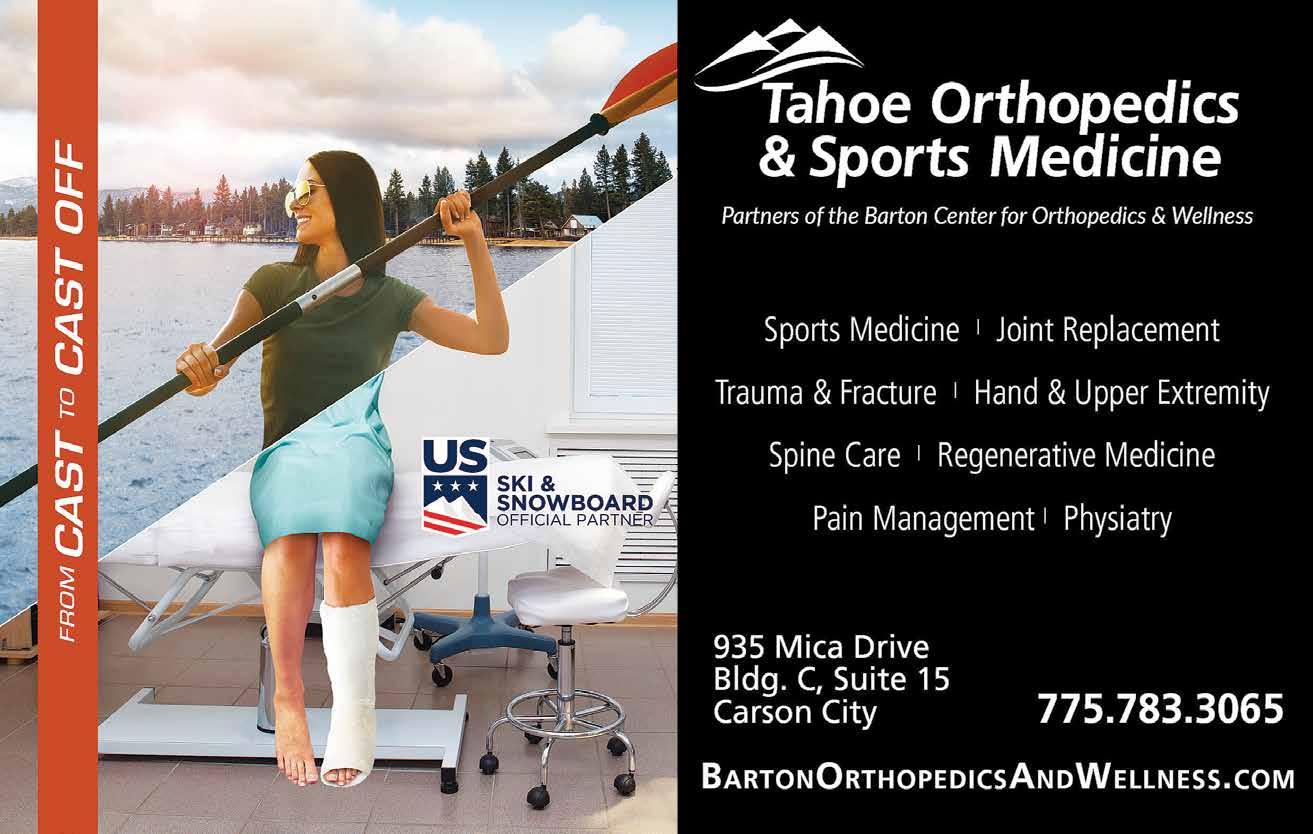
5 minute read
Living with Parkin
Living with Parkinson’s Disease
By Anne M. Pott The Continuum: Part Four
Advertisement
In this last installment of the series on the nature of Parkinson’s Disease (PD), we will provide an overview of PD, a few of the most bothersome challenges of living with it, several occupational therapy interventions, and some basic health care coverage information. We aim to provide helpful information to the community that may lead to quality-of-life improvements for people with PD, their family, friends, and care partners.
Overview
According to the Parkinson’s Foundation, it is the second most common incurable neurodegenerative condition following Alzheimer’s Disease. As the National Institute of Health explains, PD develops as dopamine neurons in the brain begin to become weakened, damaged, and die. Losses in dopamine affect the body’s ability to regulate movement. The most commonly recognized motor symptoms are tremors, muscle stiffness, slowed movements, and changes in posture, balance, and facial expressions. Diagnosing Parkinson’s Disease is not as easy as a single test. Movement Disorder Specialists gather a thorough medical history and full neurological exam, complete blood, lab, CT/MRI scans to rule out other conditions and may pursue genetic testing and a DaTscan. Interventions can include many elements. The most common are drug therapy, physical, speech, occupational and neuropsychological therapies, gastroenterological treatment, and potentially surgery. Individual and group wellness, nutrition, and exercise classes also provide evidence-based support.
Daily Challenges
As Parkinson’s Disease progresses, its impact on one’s daily life grows. Activities that once seemed second nature become more challenging such as reading the newspaper, brushing teeth, sleeping, rolling over in bed, being understood when talking, and drinking and eating without coughing. Cleaning, shopping, and preparing meals can become increasingly slow and challenging. Balance and physical coordination may begin to interfere with one’s ability to move around safely at home and in the community. Michael J. Fox humorously shared, “I used to defy gravity on a daily basis…” Some people may begin to slowly withdraw socially, increasing the non-motor symptoms of depression, anxiety, and apathy. (Parkinson’s page 12)
Parkinson’s / from page 11
Benefits of Occupational Therapy
An essential form of rehabilitation therapy for improving daily quality of life is occupational therapy. Morgan Mitchell licensed occupational therapist and certified Neuro Specialist (CNS) of the Continuum explains, "Parkinson's disease is a progressive nervous system disorder which impacts a person physically, cognitively, and emotionally. Due to the complex nature of this condition, many people living with Parkinson's experience difficulty performing their everyday occupations. As an occupational therapist, my role on a rehabilitation team is to facilitate personally meaningful participation in desired occupations, from dressing, to meal preparations, to driving."
Evidence-Based Occupational Therapy Programs
When searching for an occupational therapist, it is essential to find one certified by the American Occupational Therapy Association (AOTA) with PD knowledge. Therapists trained in the Lee Silverman Voice Treatment (LSVT) LOUD® and BIG®, PWR! offer PD-specific treatment regimens. Mitchell shared about the significance of becoming a Certified Neuro Specialist (CNS), "it provides advanced-level training on treating multiple systems, impacted by neurological conditions. Through this course, one gains further knowledge on cognitive and sensory attention strategies, utilization of adaptive equipment/ strategies, as well as home modification to increase safety and independence."
Where to find Parkinson specialists locally
Residents in Northern Nevada may receive a referral from their primary care provider to see a neurologist. Doctor Christopher Way, Movement Disorder Specialist (MDS) of Renown Health (775-982-2970), is Northern Nevada's only board-certified neurologist who has completed a specialized fellowship in Parkinson's Disease and other movement disorders. A primary care physician, neurologist, or movement disorder specialist can refer for early and ongoing rehabilitation therapies. In Northern Nevada, the Continuum (775-829-4700) is an accredited Certified Parkinson Disease Care (CPDCTM) center offering licensed physical, occupational, & speech and language therapies, individualized wellness and exercise, adult day health center, and home safety evaluation and modification services in one convenient location.
Veterans have a higher risk of developing PD due to severe or repeated concussions and exposures to certain toxins. According to VA.gov, there is a presumptive service connection between PD and a history of exposure to Agent Orange in Vietnam/Cambodia or potential exposure to the contaminated water supply at Camp Lejeune Marine Corps Base in North Carolina. Veterans with PD who served in these locations during the qualifying time periods may be awarded VA health care and disability benefits. (To receive help filing a VA disability claim, visit VA.gov, a VA regional office in Reno (775-3214712). Veterans with PD enrolled in the VA healthcare system in Northern Nevada can receive a referral from their VA primary care provider or neurologist. The referral may be to receive services at the Parkinson's Consortium Center at the VA Sierra Nevada Health Care System in Reno, NV, or the Parkinson's Disease Research, Education, and Clinical Center (PADRECC) at the Department of Veterans Affairs Medical Center (VAMC) in San Francisco, CA.

The American Parkinson Disease Association's Parkinson's Disease Information & Referral Center in the Sierra Veterans Research and Education Foundation in Reno. Nicole Mueller (775-328-1715) organizes several support groups for people with PD and their loved ones throughout Northern Nevada.
Basic Health Care Benefit Information
Medicare covers "medically necessary" medications, treatments, and some durable medical equipment (DME) for PD for people 65 years and older with Parkinson's Disease. Out-ofpocket expenses, such as co-pays, coinsurance, and premiums, will vary depending on one's plan. Ongoing in-home and longterm care may become necessary as the disease progresses but is not currently covered by Medicare.
Quality of Life
Author Joseph Conrad is attributed to have said, "The question is not how to get cured, but how to live." For people living with Parkinson's Disease and their loved ones, resilience in the face of adversity is vital. After 30 years of living with PD, Michael J. Fox speaks of his philosophy, "I can be a realist and an optimist. Lemonade, anyone?" Meaningful relationships within one's family, friends, and faith communities may foster a renewed sense of purpose, confidence, and hope for the journey ahead. By leaning into the full range of personal and professional supports available and following their individualized treatment plan, one may be able to maintain and extend their independence and quality of life.
*For questions regarding Parkinson's Disease, please contact Diane Ross at the Continuum, 3700 Grant Drive, Suite A, Reno, NV 89509. (775) 829-4700.










